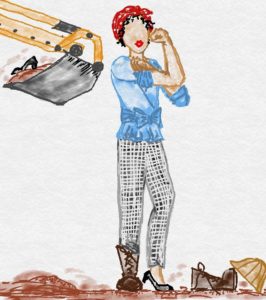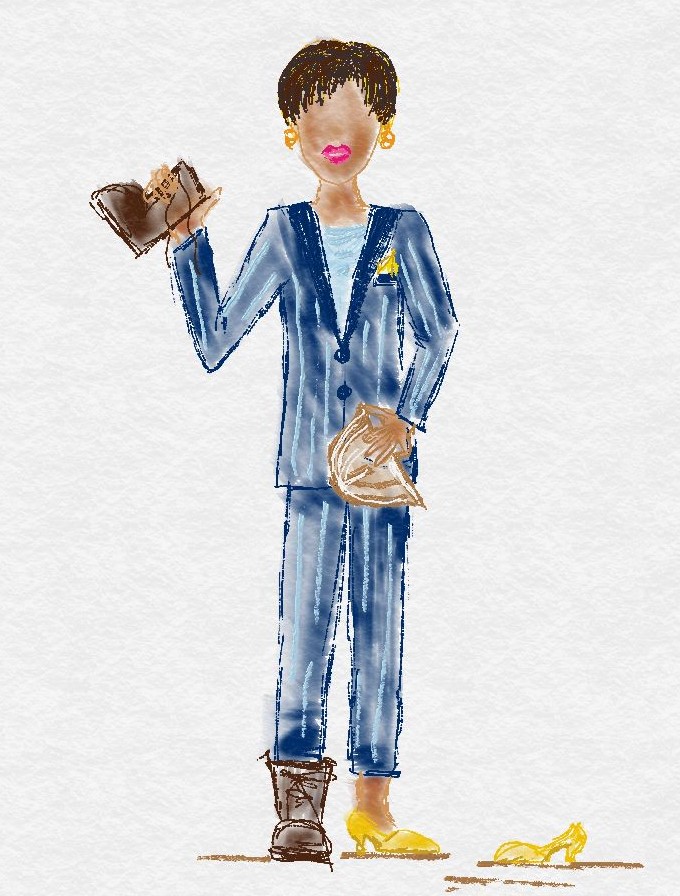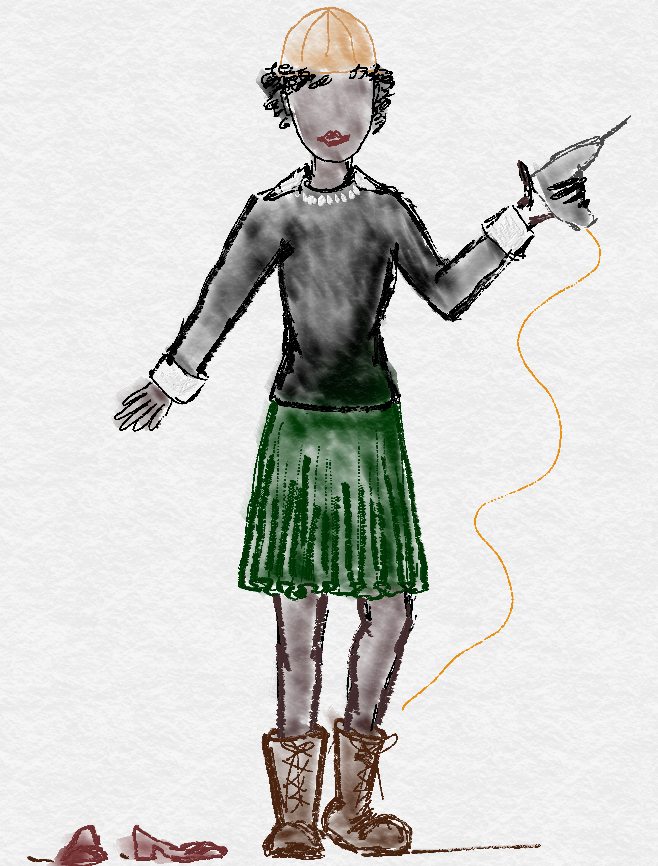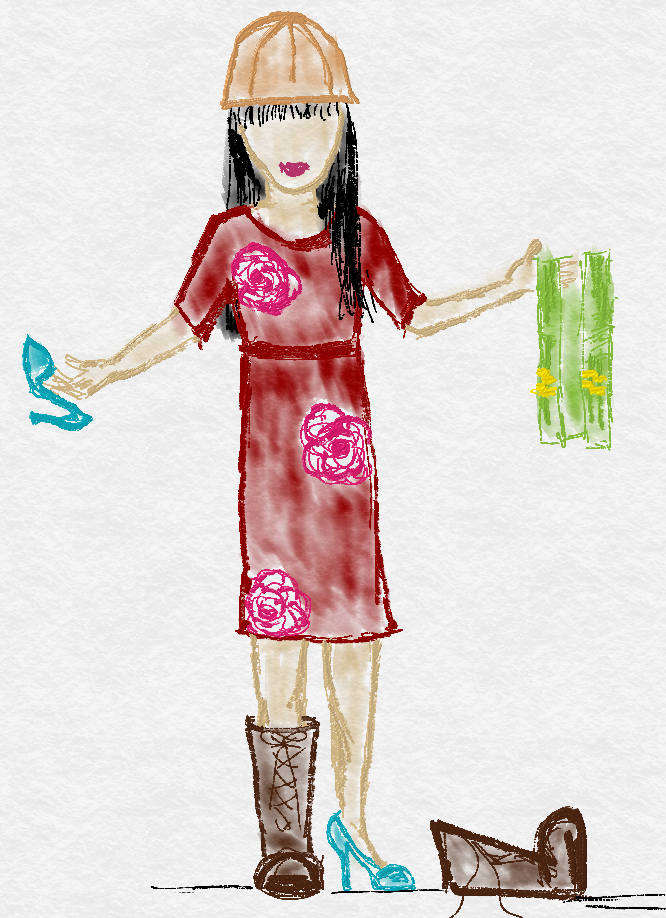maturity
Shades of Gray
We Can Do It…Even Better Now

If you follow our little blog and read the comments from our readers, you might have seen a rather pointed comment on our introduction of our contest winner, Lori Simpson, back in December. After we listed all of Lori’s lengthy accomplishments, I suggested that this was all very impressive because Lori was only 25. The implication, of course, was that it would be more desirable if Lori were 25 than her actual age, which is not my business to disclose. (I wasn’t raised by wolves). One of our readers expressed her dismay at the joke and suggested that we stop acting like younger is better and start showing some respect for the accomplishments and benefits of age.
Okay, just between us chickens, my initial reaction was not one that appreciated her insights. In fact, I think the mumbling alone in my office went something like, “Oh sure – you’re probably, what? 35? If that? I’ll bet you don’t spend a good portion of your time trying to keep your rear end from hanging down to the backs of your knees. You probably don’t even know what Retinol is. You have maybe one wrinkle? And you probably told all your friends about how horrible it is. Just wait until your face looks like a topo map and then talk to me about how great age is. You’ll just love it when you look like Mrs. Claus and all the guys just want you to bake them cookies.” There might have been some uglier rambling, but I’ll spare you that.
Over the next few days, I kept thinking about her comments. The more I thought about it, the more I realized that she was right. I hate it when that happens. My attitude about my own age in fact does nothing more than contribute to accepted social negativity. As long as I focus on the drawbacks of maturity and fail to celebrate the benefits, I’m just making the problem worse.
So I need to embrace the beauty of maturity and wisdom and stop acting like younger is better. This is nothing we all haven’t read in a thousand magazines. Extol the mystique and allure of my accumulated years and celebrate the fact that I have a lot more career experience and knowledge than the average bear. Appreciate that I am in a position now to help my clients and contribute professionally with a unique perspective based on a long history of project execution and successes.
Fabulous. So I conceded my error (even though our beloved reader never knew of my solo rant) and issued a retraction in the form of a Solution Feature that embraced the value of age.
But the issue kept bugging me. There was something missing from this newly accepted perspective. Even though I was not drinking wine at a café in Paris, adorned with an artfully arranged scarf and chatting with the most recent in a string of fabulous lovers, I could see myself better in the framework of an accomplished woman of 50. (There, it’s out there. It only took 45 minutes for me to type that number). But the career side didn’t fit. So I had to sort through it to understand why.
Many times I’ve been with my dad at a site, and an owner or a contractor or another engineer has listened to him and not me. I can’t count how many times he’s said to me, “You just don’t have enough gray hair.” To which I usually replied, “I have a salon to make sure that never happens.” It’s been our running joke for years. When I tried to figure out what piece of the maturity puzzle was missing, I realized that this was it.
Women only began working in our industry in visible numbers in recent years. It’s reasonable to say that women only really began entering our field in significant numbers in the mid-1980s. If a woman graduated from college in 1985, she would be about 55 years old now. What does this mean? This means that most of the guys on jobsites and at design firms have no experience in dealing with a “gray-haired” woman in our industry. They don’t associate a gray-haired woman in our position with a paragon of wisdom, because they have no frame of reference.
So doesn’t that just mean that we’re creating a new identity and men in our field will start to recognize it? If only it were that simple. Unfortunately, in our business, we have trouble with our roles to begin with. Many guys don’t acknowledge us at all. Being older won’t have any effect on their apathy. Other men pay attention to us only because we’re female. (“You smell better than the concrete crew.” So do some horses, but the gist of the compliment was understood). We hope and pray that our expertise will widen their appreciation of our abilities beyond just physical appearance and they’ll eventually regard us as worthwhile professionals. Sometimes it does, sometimes it doesn’t. For those guys, age cancels out any reason to pay attention to us. We’re old and unattractive to them. For another subset of guys, an older woman creates nothing but a worry or a hazard on a jobsite. “Don’t break a hip!” “Wouldn’t you be happier somewhere you can get your knitting needles out and work?”
We don’t have that magical role of a wise sage to attain, because it doesn’t exist in the female form in our industry. That doesn’t mean there aren’t some brilliant femmes d’un certain age in our field. But they are so few as to not be known by the masses.
What that means for us is that Joe B. Superintendent might ask me if I’m at a site to visit my grandson, or if I’m someone’s secretary delivering shop drawings. He might hold my elbow when I step over piles of rebar because he’s afraid I’ll break a bone and end up in a nursing home forever. He might ignore me thinking I have nothing useful to share.
This sounds rather grim, doesn’t it? On the contrary, much like everything else we have dealt with in our roles as women in a male-dominated profession, this is just another opportunity to blaze a trail. In fact, this gives us the chance to define what the image of an experienced, mature female engineer or contractor will be in the deep foundations business. I’m thinking we can do a lot with this. My contribution might be along the lines of Indiana Jones meets Dorothy Parker meets Reese Witherspoon. We are not conventional women and we won’t leave conventional marks. And all the boys on the jobsites will recognize that they will have no idea what to expect when they see a female “gray hair,” but we’ll have important things to contribute. I’m not suggesting this will be easy, but it gives us something more positive to reach for in our dotage when we start getting negative or apathetic reactions instead of the respect we deserve. I hope you’ll write this script with me.
(It’s important to note that I say gray hair symbolically and metaphorically. I honor every woman’s choice, but I’m southern. We don’t do that salt and pepper nonsense, and you will not convince me that it’s more authentic or honest or whatever other fairy tale you want to sell me. Hair colorists need jobs, and I won’t let them down. But I’ll project that “gray hair” aura with pride).


